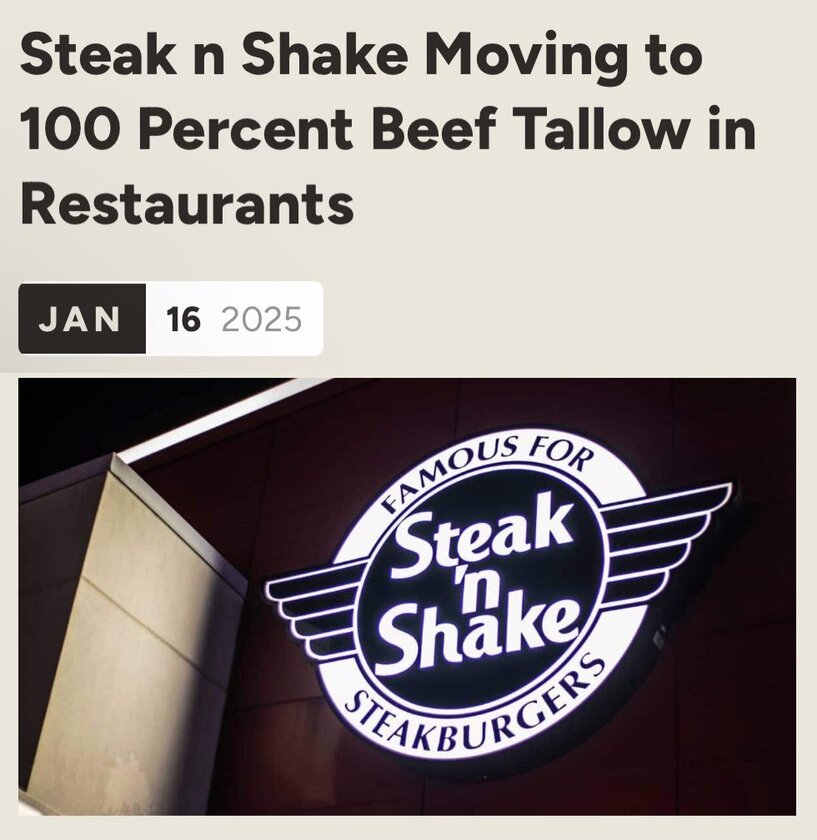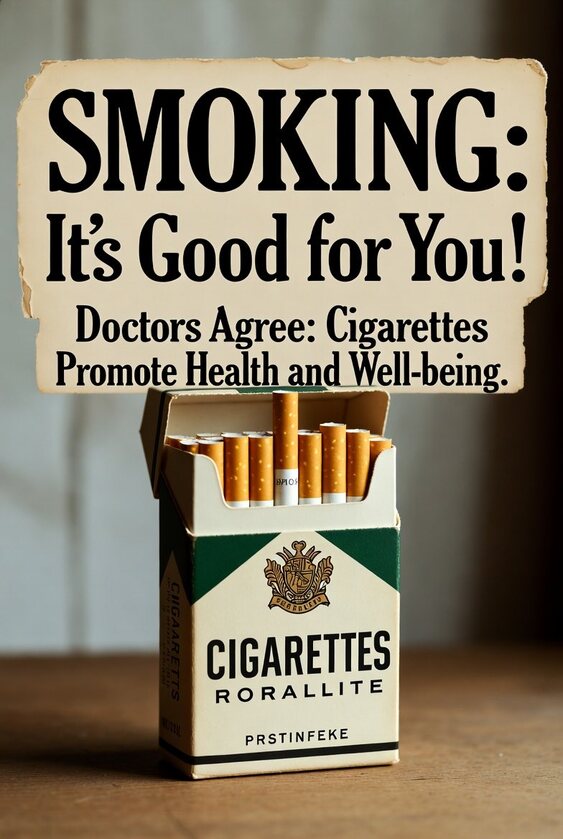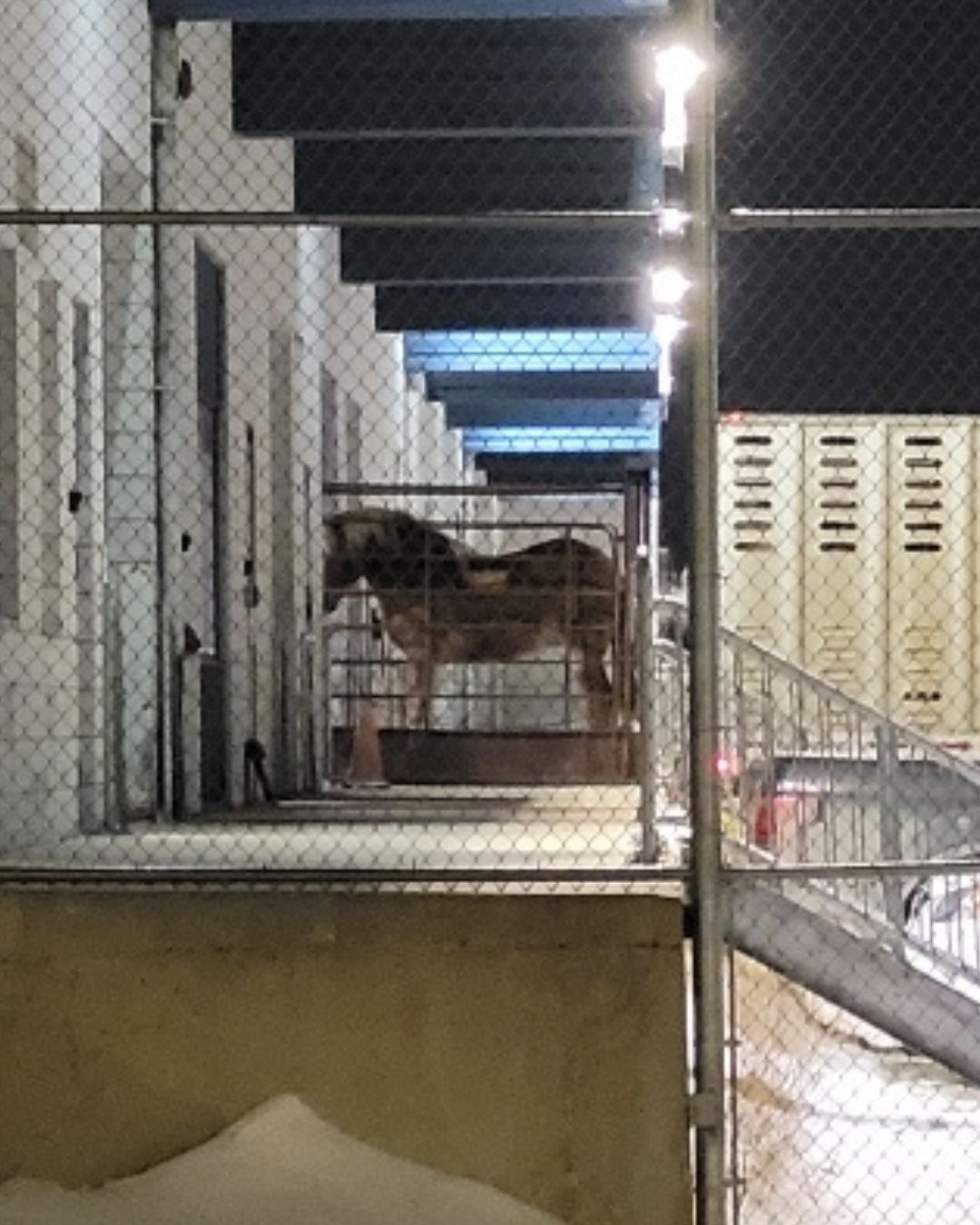Email today to buy or store your DASEIN System 6 can carton today.
[email protected]
By the end of February 2025, all Steak n Shake locations will use 100% all-natural beef tallow.
Here’s the press release:
Steak n Shake announced today that it is moving forward with the use of 100% all-natural beef tallow in all its restaurants.
Steak n Shake has long been famous for its shoestring fries – and it will now fry them in the best way possible.
When fries were created centuries ago, they were made with tallow. "Our fries will now be cooked in an authentic way, 100% beef tallow, in order to achieve the highest quality and best taste," said Chris Ward, chief supply chain officer for Steak n Shake.
Chief global development officer for Steak n Shake, Kristen Briede, stated: "The consumer wants the best and deserves the best. By adopting 100% beef tallow, Steak n Shake is delivering the best fries possible."
prnewswire.com/news-releases/…
https://www.prnewswire.com/news-releases/steak-n-shake-to-use-100-beef-tallow-302353474.html

Basashi is the term for horse sashimi. The overwhelming majority of sashimi is fish.
ANOTHER SHIPMENT 💔🐴 At 4:05 AM, another export flight of horses left the Winnipeg airport & is now en route to Japan for slaughter. With the windchill, it was -30°C, yet horses were left in crates on the tarmac for hours. Canada must END this now! #CdnPoli
📷 @mbanimalsave
My battery is low and it's getting dark." These haunting words, sent from 225 million miles across the void, became the poignant farewell of NASA's Opportunity rover—affectionately known as Oppy—before it fell silent forever. Launched in 2003 and landing on Mars on January 25, 2004, Opportunity was designed for a modest 90-day (90-sol) mission to search for signs of ancient water. Instead, this plucky little solar-powered explorer defied every expectation, outlasting its warranty by a staggering factor of 55, roaming the Red Planet for nearly 15 Earth years (5,498 days / 5,352 sols). It traversed over 45 kilometers (28 miles), survived brutal dust storms, climbed crater rims, and delivered groundbreaking discoveries: definitive evidence of past liquid water, minerals formed in water, and hints that parts of ancient Mars could have supported microbial life.But in June 2018, a massive planet-encircling dust storm engulfed Mars, blocking sunlight for months and starving Oppy's solar ...

RFK Jr: Food is affecting everything that we do...if a foreign enemy or adversary did this to our country, poisoned us at mass scale, we'd consider it an act of war...
https://x.com/i/status/2023117209036312732
















